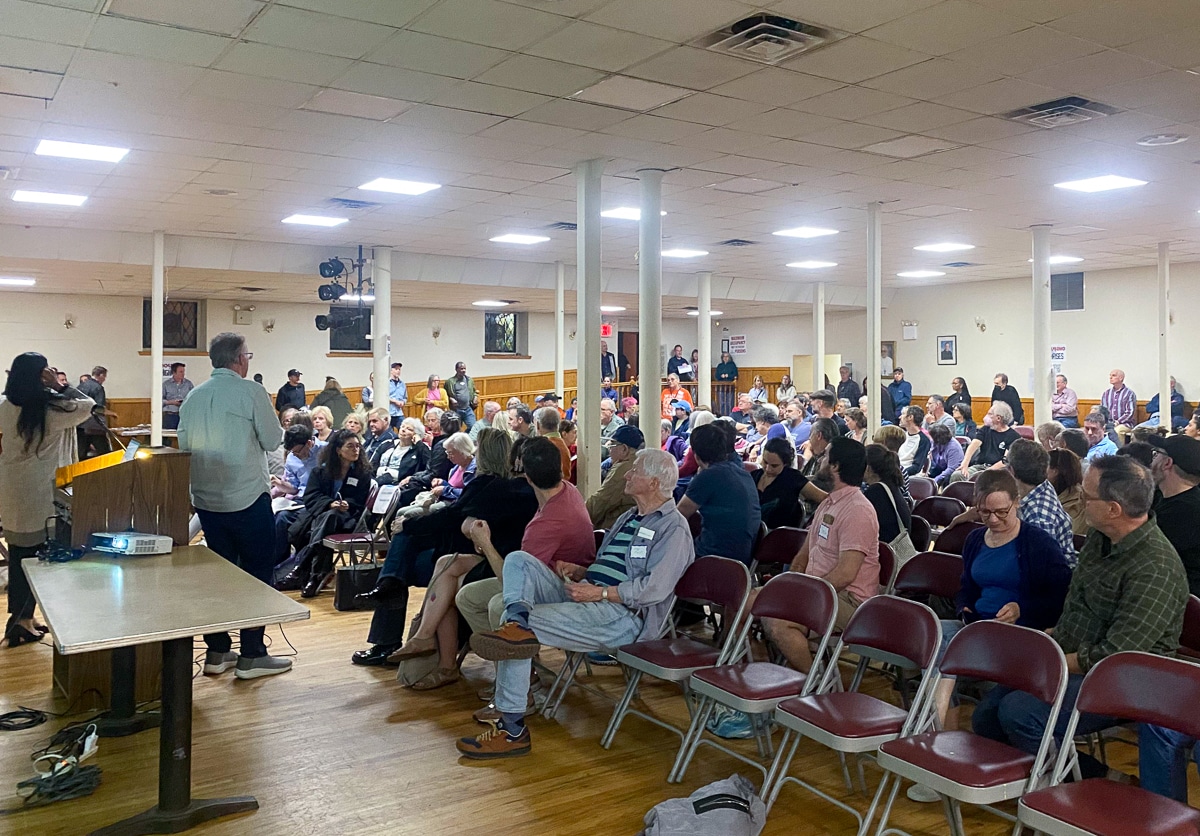Rents Soar While Income Falls in Brooklyn
Average rents rose 77 percent in Brooklyn while city wide real median income fell 4.8 percent from 2000 to 2012, according to a report out from the city comptroller described in The New York Post. The increases were the largest in any borough. A story in the Times implied that meeting Mayor de Blasio’s stated…

Average rents rose 77 percent in Brooklyn while city wide real median income fell 4.8 percent from 2000 to 2012, according to a report out from the city comptroller described in The New York Post. The increases were the largest in any borough.
A story in the Times implied that meeting Mayor de Blasio’s stated goal of keeping or creating 200,000 affordable units will not fix the problem:
In an interview, Mr. Stringer said numeric goals were not enough. He noted that the Bloomberg administration spent $5.3 billion of city money and leveraged another $18.3 billion to both create new affordable units and preserve existing housing — for a total of 165,000 units over 12 years — yet the city today is still grappling with record homelessness and the loss of low-rent housing.
A separate story in the Post described a young woman paying only $1,256 a month in rent for a spacious two-bedroom rent stabilized in Crown Heights — on the face of it, an excellent deal. But, with a salary of only $30,000 a year before taxes for her retail sales job, she can barely afford it. Her landlord has offered her money to move, but she didn’t take it, knowing she would not be able to find a lower rent elsewhere.
Rents are going up and wages are falling everywhere, not just in New York City. “In the rest of the nation, rents rose by 50.1 percent over the same period — hitting an average of $773 per month,” said the Post.
The comptroller’s report recommended that affordable housing in New York City should focus on the poorest, not middle income New Yorkers. What do you think should be done?
New York City Housing Push Should Aim at Poorest, Report Says [NY Times]
NYC Rents Skyrocket as Incomes Lag [NY Post]
As Rents Rise, Some Stuck in Affordable Homes With Moving Too Costly [NY Post]









Really, how old are you? From my general perspective reading this blog, it seems you are retired or some so I guess this keeps you company or whatever. My question to you is how much did you make? You’re telling poor people to move to Philly. I wasn’t talking about upper middle class people, you were. They can afford parts of the city. They have the option of commuting. This is a worthless conversation. I can see what/who majorhints was talking about.
I see I’ve touched a nerve. Maybe you need some rest. Take care.
I kept this one short so you can keep up.
You suspect it is affordable or you know? I like dealing with facts, not your suspicions. “Self-entitled” isn’t a phrase. It’s redundant. Entitlement already implies it is the subject who feels that way. But this is not a grammar lesson. This is not Twitter nor do I deal in soundbites, I’ll write as much as I need to get my point across.
Point is the further you move, the more expensive tranportation becomes. Simple relationship. Hope that’s not too long winded for you.
You know daveinbedstuy, maybe you should use the internet to do a little bit of research before you shoot off at the hip. You clearly know how to post on this forum very well. Google is as easy. $1,350 to travel between NYP and 30th Street in Philly is not affordable. That’s called rent for some people. Go to AMTRAK.com and see how much it costs. Clearly, you have to be making a significant amount of money for that to even be worth it – but then we wouldn’t be having this conversation because you fall in the “rich” category.
What part of my logic is frustrating for you – the part that I am basing my response on fact or that I won’t let you get away with your bs without saying something. Finally, I sound rather “self-entitled” – aside from “self-entitled” being a redundant phrase, so I take you mean I sound “entitled” – exactly what do I believe I “deserve” the right to have according to you?
Again, just because you write it doesn’t make it a reality.
Sure dave, whatever makes you sleep well tonight.
Thanks majorhints. And no problem. I understand how some of these conversations can go. I’m primarily frustrated at larger global economic trends that those with economic/political power can easily take advantage of, while the local, microeconomic effects of those same policies are blamed on the individual actors who have no choice but to operate within this system. I’m very sure it’s easy to say get up and move, like some have said, but aside from the economic benefits it may bring, which I don’t think has been shown, there are the considerations like (1) is their access to jobs where the person moves or will they be left worst off, (2) pyschological/sociological effects of leaving, for some, the only home they’ve known and leaving a community support system, or (3) will they have access to growth/learning opportunities going forward. I don’t think any one is saying to create a state where everyone is living off someone else’s dime. I think it’s seeking a more rationale economic/development/etc policy that doesn’t displace individuals from communities, allows them opportunity to grow, and generally live a modest/fair lifestyle – nothing extravagent. And for the poor, I am of the thinking at least that the environment shoud allow them to be poor with dignity – sure they won’t have access to luxuries but at least the basics that they can feel human and feel confident that they are moving towards self-sufficiency without being hassled for needing some help.
Jay, while you are expanding on my points and partially disgreeing your analytical take is refreshing to most of the maniacal ranting and raving that often goes on in this forum even from some of the blog’s employees. I didnt go into super detail because generally when you do it falls on deaf ears, so my bad for playing to the status quo in this conversation.
That being said, you are right productivity is up over 20% relative to 20 years ago most of that driven by improved technology across all sectors. Manufacturing is the easy one to call out but its much much wider than that and I deal with some of the largest outsourcing companies on a daily basis so those local service jobs you noted are really the only ones that are safe until drones bring people everything like Amazon wants to do.
The elasticity of demand does fluctuate by price point largely because of bank lending criteria and unique assets related to a given location but is not outside of the realm of being substitutable. Now real world economics and the inefficiencies of a given market or a product or group of products are present everyday. The welfare state comment was not meant to be applied to the entire country or state just the given situation and people have raised pitchforks about one57 if you havent read in the news so it goes both ways. But I do agree that there are legitimate issues to contest from both sides and we know that will never change.
The point is, it easy to tell someone to move but you know damn well you are asking them to leave a job. But then you say keep your job and move farther away, but you ignore transportation costs. It’s nice to prescribe something to a group of people without actually having to think it through since it does not affect your life one bit.
I decided to do the math based on the information you provided in your posts, rather than outright saying it can or can’t be done. Assuming you work 20 days per month, a 40 trip book on beiber Bus will costs you (at a minimum) $520 bucks. I took the cheapest location which is Hellertown (near Allentown) – you can check their website. I added $100 for 20 round trip subway fares when you get to the City. That makes your transportation costs $620 per month. Add that to your $700 2 bedroom apartment and you are now paying $1,320 per month on rent and transportation. The woman in this story is paying $1,256 per month sincethis seems to be an obsession. Again, please explain where the savings are.